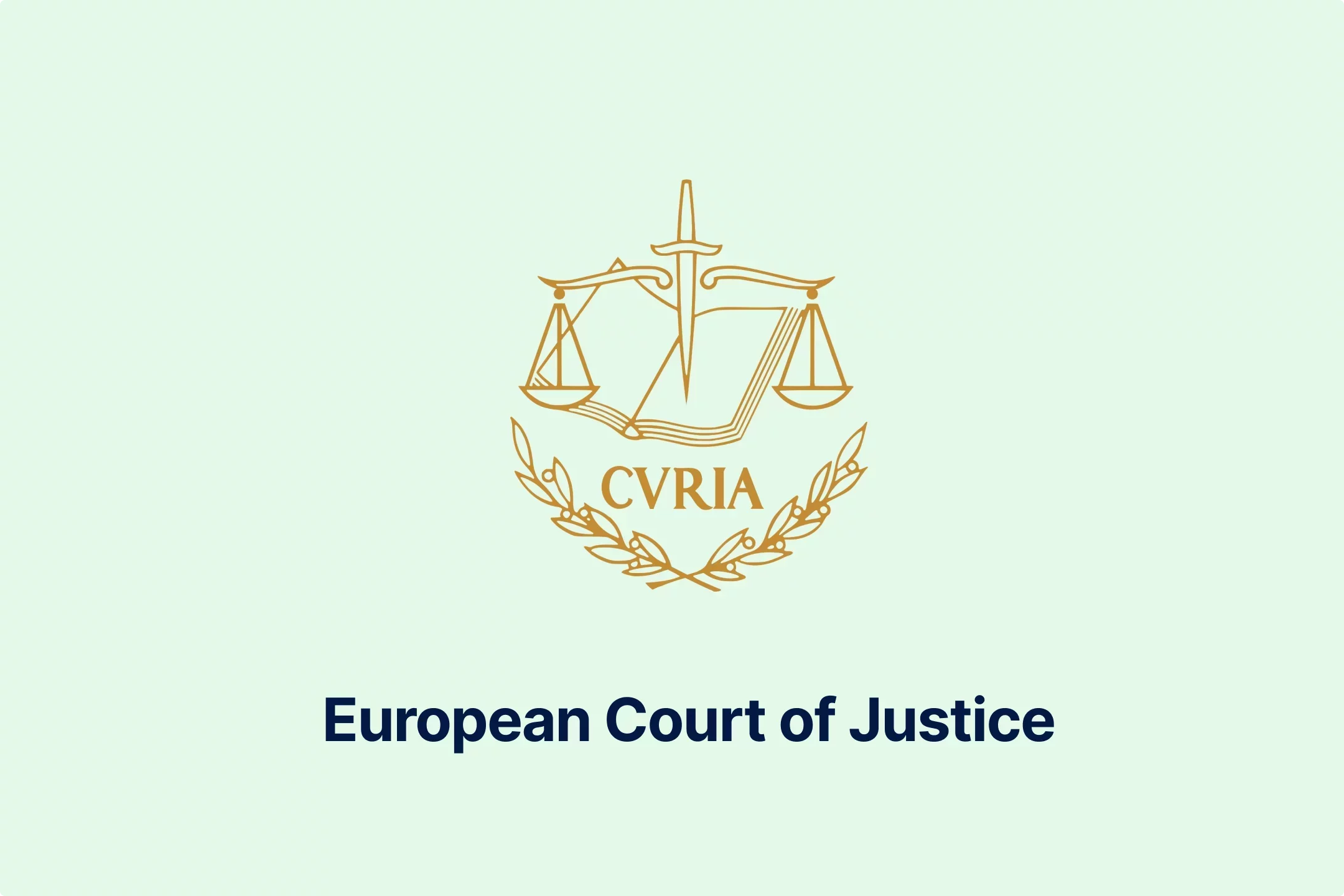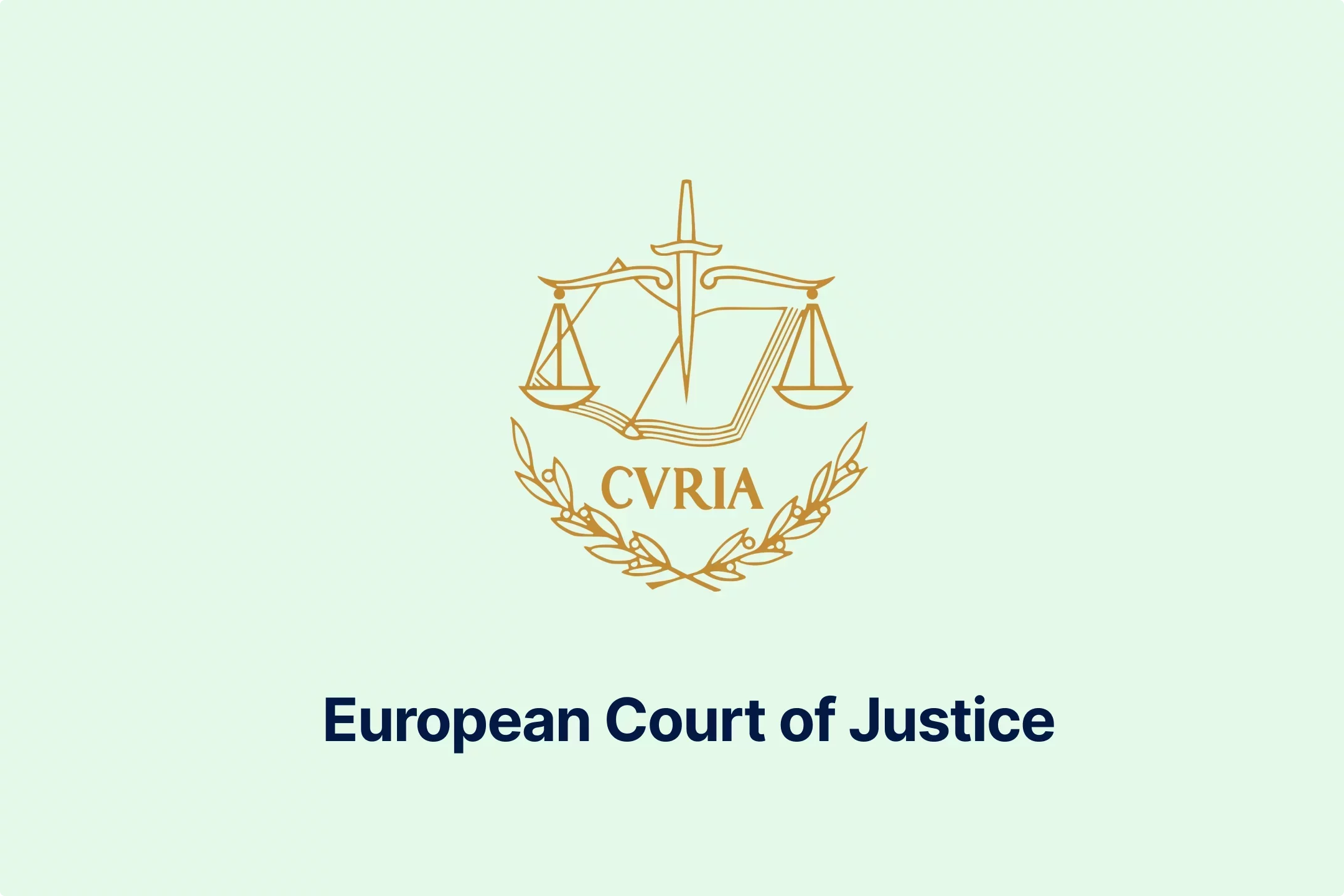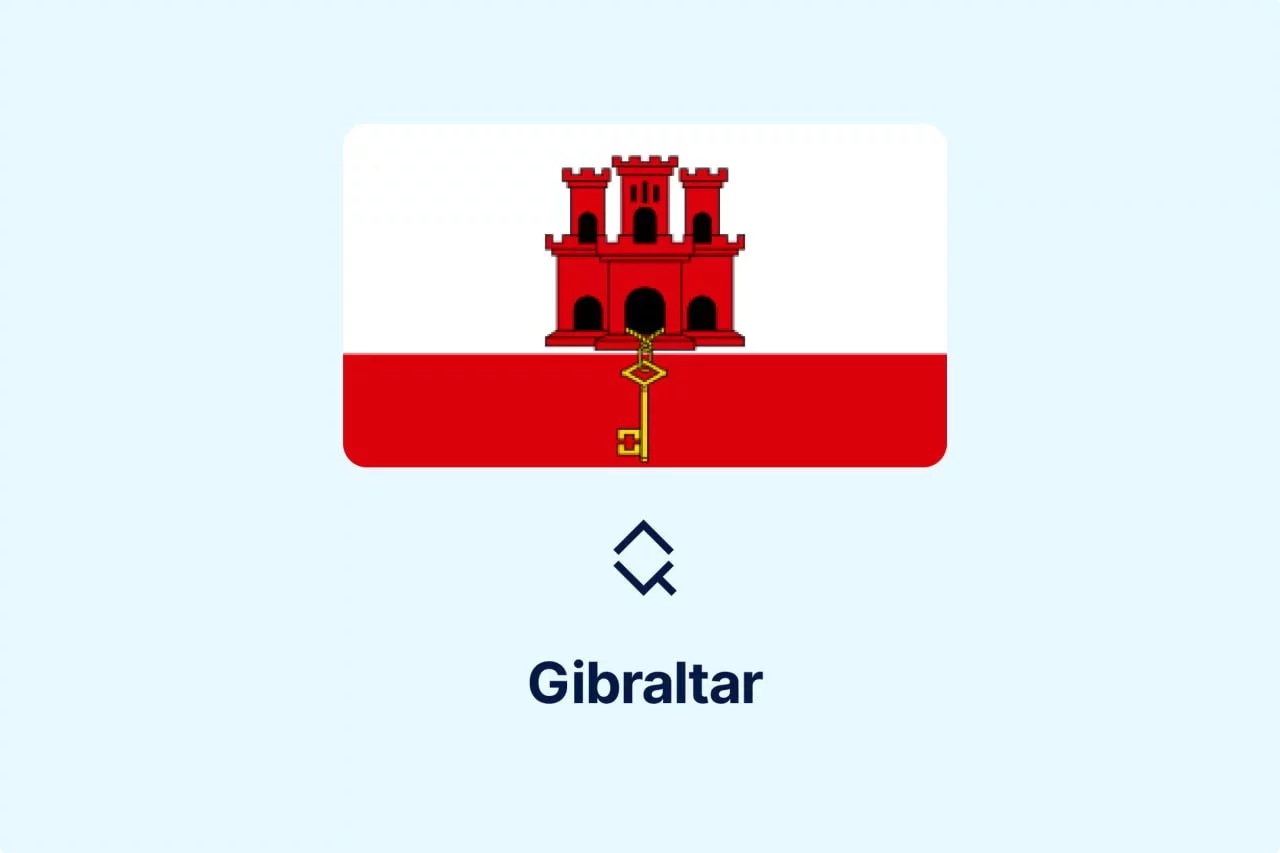VAT Implications for Pro Bono Legal Services in the EU - Case C‑744/23

The price of free legal aid: VAT implications for Pro Bono services in the EU
At the intersection of legal aid, fairness, and VAT law lies a deceptively simple question: can a legal service rendered free of charge to a client still be subject to VAT when a third party – by legal obligation – pays a statutory minimum fee to the service provider? This is the core issue in Case C‑744/23, currently pending before the Court of Justice of the European Union (CJEU).
The case originated in Bulgaria and concerns a one-person law firm that offered legal representation on a pro bono basis to a financially disadvantaged client. Under Bulgarian law, such representation is permitted without remuneration where the client cannot afford legal services. However, when the client won the case, the court ordered the losing party to pay a statutory minimum fee of BGN 400 directly to the lawyer.
The lawyer, registered for VAT purposes, applied to the court to adjust the judgment to include VAT on the awarded fee. The losing party objected, arguing that since the service had been offered free of charge, no VAT could apply. The Sofia District Court, confronted with conflicting interpretations of national and EU VAT law, referred four questions to the CJEU for a preliminary ruling.
Legal context: VAT law and the role of consideration
Under Directive 2006/112/EC, services rendered for consideration by a taxable person are generally subject to VAT. Article 2(1)(c) establishes the basic principle, while Article 9(1) defines the concept of a taxable person, which includes any individual or entity independently carrying out an economic activity. Article 73 clarifies that consideration may come not only from the direct recipient of the service but also from a third party, provided that it is linked to the supply of the service. Additionally, Article 26(1)(b) provides that even free-of-charge services may be treated as taxable in specific cases, for instance when performed for private use or non-business purposes.
In Bulgaria, the Advocates Act allows for pro bono representation in defined circumstances. However, if the client wins, the court may order the opposing party to pay the lawyer a minimum statutory fee, which is determined based on national regulations. According to those same regulations, VAT is deemed an inseparable component of the lawyer’s remuneration if the lawyer is registered for VAT.
The preliminary question raised to the Court is whether this statutory fee – granted not by agreement but by operation of law, paid by a third party, and conditional on a successful outcome – can be seen as consideration within the meaning of the VAT Directive.
The Advocate General’s view: Economic substance prevails
In her Opinion of 8 May 2025, Advocate General Juliane Kokott offered a comprehensive and principled interpretation of the legal framework. She concluded that a statutory fee paid by a third party in the context of pro bono representation still constitutes consideration for VAT purposes. Her reasoning rested on several key points.
First, Kokott underscored that VAT is a tax on consumption, not on contracts. It is intended to capture the value of a benefit received by one party and paid for – whether directly or indirectly – by another. In this case, legal services were indeed performed, and the lawyer ultimately received payment, even if not from the client. The fact that the client did not pay is irrelevant; what matters is that the lawyer received a fee for a clearly defined and consumable benefit.
Second, she rejected the argument that the uncertainty surrounding the payment disqualified the service from being taxable. While the statutory fee was only awarded upon a successful outcome, this type of conditionality is not foreign to VAT law. The Directive allows for VAT to be assessed upon actual receipt of payment (cash accounting), and prior case law has established that such contingency does not remove the underlying nature of a service as being "for consideration."
Third, Kokott addressed comparisons to earlier CJEU cases, such as Tolsma (C‑16/93), involving voluntary street donations, and Baštová (C‑432/15), concerning a prize in a horse race. She argued that these precedents were fundamentally different. In Tolsma, the money was given voluntarily without any legal obligation or pre-defined service. In Baštová, the prize was not remuneration for a specific service but a reward based on outcome, not performance. In contrast, in the present case, the statutory fee was awarded by law, directly tied to the performance of the lawyer and the success of the client, and payable regardless of the losing party’s will. Importantly, Kokott emphasized that the legal framework itself – Bulgarian law in this instance – created the necessary relationship between the lawyer, the client, and the third-party payer. There was no need for a contract between the lawyer and the losing party. The legal obligation imposed by the court’s cost decision was sufficient to establish the reciprocity required for VAT purposes. She concluded that the statutory payment must be regarded as taxable consideration, even if it was triggered by the success of the case and paid by someone other than the client.
Implications for practice and policy
If the CJEU follows the Advocate General’s reasoning, the judgment will have significant implications for the treatment of legal services under VAT law across the EU. It would establish that legal services offered pro bono are not automatically outside the VAT scope when a third-party statutory mechanism results in the lawyer being paid. The key consideration becomes not the intention behind the service or the client's inability to pay, but whether remuneration – however structured – is ultimately received.
This would affect law firms and individual practitioners who regularly assist clients in financial difficulty. They may need to account for VAT on statutory costs even in the absence of any contractual fee arrangement. Courts, too, may need to revisit their approach to awarding costs in order to reflect the potential VAT liability borne by the service provider. It also reinforces the broad interpretation of "consideration" under EU VAT law and aligns with previous rulings that emphasize the substance of a transaction over its legal form.
Moreover, this case illustrates the importance of legal certainty in the application of VAT rules to regulated professions. As Kokott pointed out, there should be no VAT distortion merely because a service was funded through a legal obligation instead of a private agreement. Equal treatment of similar services – whether contractually or statutorily remunerated – is essential to maintaining VAT neutrality.
Conclusion: Awaiting the Court’s judgment
While the final decision of the CJEU is still pending, the Advocate General’s Opinion in T.P.T. v. Financial Bulgaria EOOD offers a strong signal that statutory payments, even in pro bono contexts, are likely to be considered taxable under EU VAT law. The Opinion is firmly grounded in the objectives of the VAT system, respects the functional reality of professional services, and rejects overly formalistic or subjective interpretations.
If the Court follows this line of reasoning, it will not only bring clarity to a long-standing grey area in VAT application but also affirm the principle that taxation follows economic substance. For practitioners across the EU, the message is clear: even when services are offered without charge to the client, the potential for statutory or court-ordered remuneration may bring the transaction into the scope of VAT.
Until the judgment is delivered, legal professionals, courts, and tax authorities alike will be watching closely. The outcome of this case could shape how VAT applies in a range of situations where social policy intersects with legal practice and tax law.
CJEU - C-744/23 - ECLI:EU:C:2025:332 – No-cure-no-pay services >> https://eur-lex.europa.eu/legal-content/EN/TXT/HTML/?uri=CELEX:62023CC0744
More News from Europe
Get real-time updates and developments from around the world, keeping you informed and prepared.
-e9lcpxl5nq.webp)







-3rcczziozt.webp)

-rvskhoqpms.webp)




-a5mkrjbira.webp)

-ivkzc1pwr4.webp)




-hssrwb5osg.webp)



-c06xa1wopr.webp)









-webajrr4ny.webp)
-evibmwdwcn.webp)
-7acdre0hop.webp)

-lcgcyghaer.webp)
-ol6mdkdowg.webp)
-aqdwtmzhkd.webp)

-njgdvdxe2u.webp)



-i6rki3jbad.webp)
-hdwgtama05.webp)

-atbhy5fyxv.webp)






-zp2n6zixoa.webp)
-oa1ynbm4sn.webp)


-lltkno6txy.webp)



-do38odrqnq.webp)

-t409oldqzt.webp)

-hordopb6xh.webp)

-ooimnrbete.webp)

-lwb5qpsily.webp)


-eumafizrhm.webp)

-mtqp3va9gb.webp)

-3ewrn1yvfa.webp)
-591j35flz2.webp)

-huj3cam1de.webp)


-hafis0ii23.webp)

-qseaw5zmcy.webp)



-qzsah2ifqx.webp)


-69rzooghib.webp)
-wrvng98m0g.webp)


-psucycuxh2.webp)
-klyo8bn5lc.webp)




-6wv5h5eyyd.webp)
-tfgg78rbid.webp)
-a6jpv9ny8v.webp)
-qhdbapy0qr.webp)


-owvu7zoc13.webp)


-h28jrh1ukm.webp)

-wl9bl1rw3a.webp)

-2w76jtvtuk.webp)

-c0uvrmrq9j.webp)



-pofe7ucwz3.webp)



-5cc23ezxyf.webp)
-rrmabbekeb.webp)








-iyyeiabtaf.webp)
-c8rbjkcs01.webp)
-nilkffjhah.webp)

-hikakq55ae.webp)

-z1d60bldtg.webp)
-d1a0q6n7mp.webp)
-viip8nvoeh.webp)
-bvv1otliox.webp)



-de8hdb1bn3.webp)
-7xsxxoypnx.webp)

-cm0opezg73.webp)
-0tovsdupmi.webp)
-subxdamdj6.webp)


-gly6ablwnh.webp)
-gkduqhwbzh.webp)
-qpe1ld9vcj.webp)
-8noukwsmba.webp)
-aka29tuhkt.webp)


-fisvs27yrp.webp)


-mp0jakanyb.webp)

-aivzsuryuq.webp)



-o7f4ogsy06.webp)

-zjja92wdje.webp)
-hrbhdts8ry.webp)
-qtdkwpgkug.webp)


-cf8ccgah0p.webp)
-0em3cif5s6.webp)






-ptzesl0kij.webp)

-tfzv42pyms.webp)







-uodv7sfbih.webp)
-bbrdfmm9qf.webp)



-m2tl8crfqr.webp)




-1awbqjgpjs.webp)
-avbjsn1k1g.webp)


-0h8ohkx6s0.webp)



-wfmqhtc7i6.webp)
-7wljbof2zo.webp)

-eqt97uyekl.webp)
-wzw9mcf563.webp)

-z4oxr6i0zd.webp)




-l0zcrrzvhb.webp)
-fhtic1pwml.webp)

-iipdguuz9p.webp)
-nkhhwrnggm.webp)
-pltqwerr3w.webp)

-nn6mtfbneq.webp)

-tmnklelfku.webp)



-8z1msbdibu.webp)
-7g16lgggrv.webp)



-lxcwgtzitc.webp)
-9mc55kqwtx.webp)


-xla7j3cxwz.webp)
-jrdryw2eil.webp)






-t9qr49xs2u.webp)


-qjopq5jplv.webp)



-vune1zdqex.webp)

-qsozqjwle2.webp)
-rgjta7iwiv.webp)

-zb6bxxws47.webp)
-lyfjzw4okp.webp)

-ogpfmol5m1.png)


-czisebympl.png)

-zetvivc79v.png)
-ud7ylvkade.png)
-qizq6w2v5z.png)







-ihr6b4mpo1.webp)
-k1j4au0ph6.webp)
-swxxcatugi.webp)


-ig9tutqopw.webp)

-tauoa6ziym.webp)

-spr0wydvvg.webp)

-xfuognajem.webp)





-u2nv5luoqc.webp)








-opuxpan2iu.webp)




-kwttsfd8ow.webp)
-8u14qi10nj.webp)

-wjpr96aq5g.webp)

.png)

.png)


.png)


.png)



.png)
.png)
.png)
.png)
.png)

.png)
.png)




.png)
.png)




































































































































